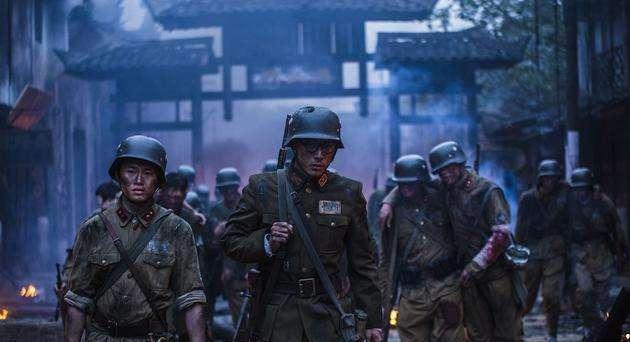Some netizens asked: How did the Guangxi wolf soldiers who fought the old roots in the Battle of Songhu fight with the Japanese army in bloody battles? The Gui troops were brave in the Battle of Songhu, but the results were not ideal.

When the officers and men of the gui army's counter-offensive unit raised their bayonets, straightened their bodies, and bravely rushed to the Japanese position, the artillery, machine gun fire, and tank fire that the Japanese army had already prepared all fired at the officers and men of our army who were swarming up, and the retreat was cut off by artillery fire. Within a day, only a few broken shelves remained of the six divisions with strong troops. Bai Chongxi did not eat a good meal for several days and slept well.
In the 3 months of the Songhu Campaign, in fact, the 6 divisions of the Gui clan spent 1 day, because of improper planning, heavy losses, and lost their combat effectiveness.
Then, in the War of Resistance Against Japanese Aggression, the Gui troops had no record, and in the Battle of Taierzhuang, there were no Gui troops participating in the battle, but the commander was Li Zongren, and the Gui troops served as a cover for the flank at the Battle of Xuzhou. In the First Battle of Guangxi, the main force was the central army, and the Battle of Kunlun Pass was fought by the elite 5th Army. In the end, Guinan was defeated, but there were many Gui troops.
In the 2nd Battle of Guangxi, that is, in 1944, the Japanese army invaded Guangxi, the Performance of the Gui forces was very poor, in the fortress city of Guilin, the actual Japanese army launched a general offensive to capture Guilin within 1 day. It didn't take long for the Japanese to almost completely occupy Guangxi, and 75 of the 99 counties and cities were occupied. By the time of the Guangxi Counteroffensive in 1945, the main force was also the main force of the Central Army, and there were no Guizhou troops participating in the war.
In particular, in the final Guiping counterattack, the Gui troops followed behind the other troops, which affected the battle situation, enabling the Guiping Japanese army to concentrate all their efforts on the front, so that the enemy reinforcements could safely cross the Xun River.
In 1942, a few thousand Japanese troops seized the base of the 21st Group Army of the Gui Clan in Dabie Mountain, Anhui. In 1944, the Gui 7th Army stationed in Anhui signed a non-aggression agreement with the Japanese army.
Chen Junzhi, the commander of the local puppet army, had direct contact with Major General Qi Daozheng, deputy commander of the 7th Army. Lu Xuefan, a staff officer of major generals of the Gui clan, said that Bai Chongxi was a national sinner as long as he could preserve his strength and always put victory or defeat aside. This caused the Gui troops to have no very big achievements in the War of Resistance, such as the total annihilation of a large group of the Japanese army, such as a battle of this scale, I am afraid it is impossible to count 3!